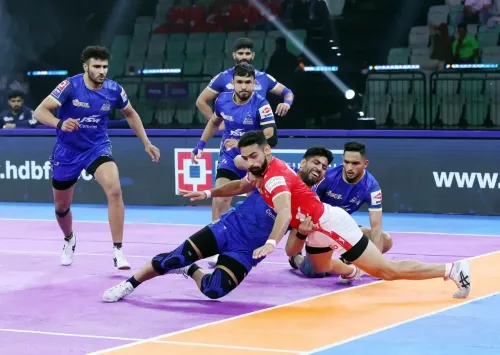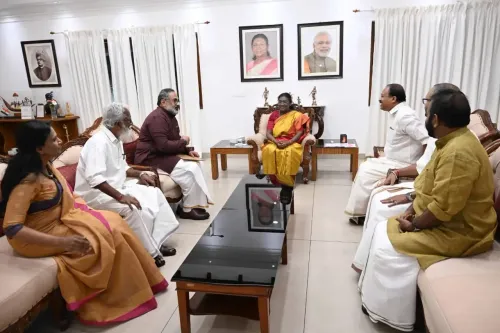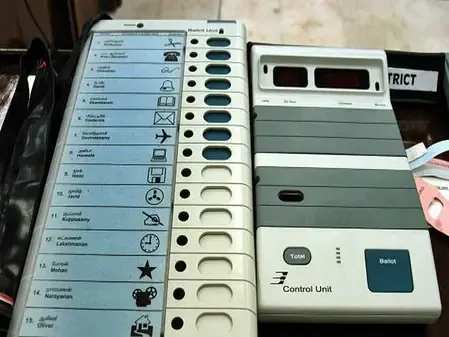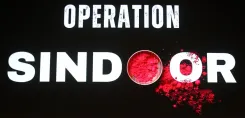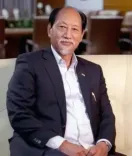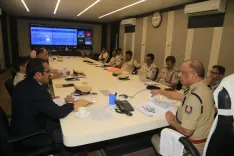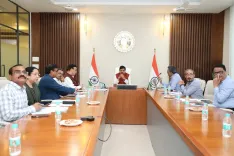Will India Ever Accept Mediation on Pakistan Issues? PM Modi to Trump
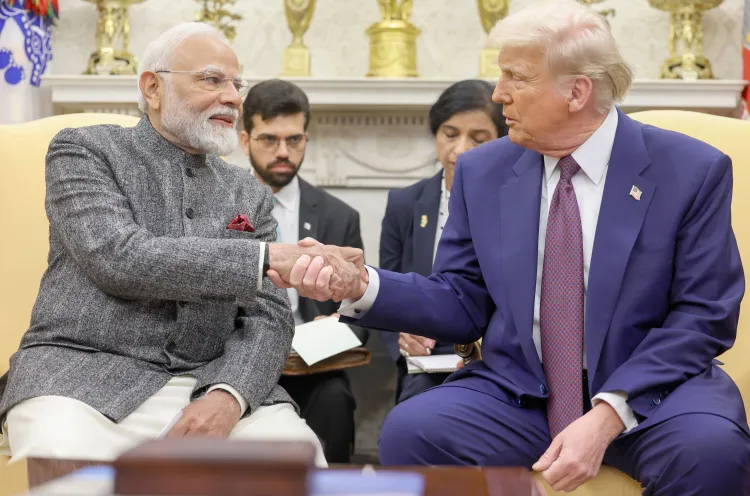
Synopsis
Key Takeaways
- India does not accept mediation regarding Pakistan issues.
- Operation Sindoor targets terrorist infrastructure in response to attacks.
- There is complete political unity in India on national security matters.
- The conversation reflects strong India-US relations.
- Both leaders discussed international conflicts impacting global peace.
New Delhi, June 18 (NationPress) Prime Minister Narendra Modi has made it clear to US President Donald Trump that India will not seek nor will it ever accept any form of mediation concerning issues related to Pakistan, as stated by Foreign Secretary Vikram Misri on Wednesday.
Misri disclosed that the two leaders engaged in a phone conversation lasting 35 minutes, marking their first dialogue since the Pahalgam terror attack and India's subsequent Operation Sindoor.
This call came after a previously scheduled face-to-face meeting at the G7 Summit was cancelled due to Trump's premature return to the United States.
"The phone conversation occurred at the request of President Trump," Misri remarked, adding that PM Modi took the chance to outline India's calculated military response to the April 22 terror incident in Pahalgam, which tragically resulted in the deaths of 26 tourists.
The attack was claimed by The Resistance Front, a faction linked to the Pakistan-based terrorist organization Lashkar-e-Taiba.
"Prime Minister Modi emphasized that on the night of May 6-7, India focused solely on targeting terrorist hideouts in Pakistan and Pakistan-occupied Kashmir. India's actions were carefully measured, precise, and intended to avoid escalation," Misri stated.
"India has clearly conveyed that it will respond to Pakistan's 'goli' with 'gola' (a firm and proportionate military response)," he added.
Operation Sindoor witnessed India striking nine significant terror infrastructure sites in both Pakistan and PoK. In retaliation, Pakistan executed military strikes not only on Indian military positions but also on civilian and religious locations, leading to further escalation.
Misri also mentioned that on the night of May 9, US Vice President Vance informed PM Modi that Pakistan might initiate a substantial retaliatory strike.
"Prime Minister Modi clearly indicated that if such an event occurs, India will respond with even greater force. India's firm counterattack on the night of May 9-10 inflicted severe damage on Pakistan's military, rendering several of their airbases inoperable," Misri stated.
He pointed out that following India's robust retaliation, Pakistan approached India requesting a ceasefire.
"Prime Minister Modi clarified that the ceasefire was agreed upon solely at Pakistan's request and that India does not desire mediation. He emphasized that at no point during this situation were India-US trade discussions or third-party mediation entertained," Misri noted.
"The cessation of military actions was addressed directly between the two nations through established military channels," he added.
Reaffirming India's enduring stance, Misri stated, "Prime Minister Modi reiterated that India has never accepted mediation, does not accept it, and will never accept it. There exists complete political unanimity in India on this matter."
According to Misri, President Trump fully comprehended India's position and expressed backing for its counter-terrorism efforts. PM Modi also alerted Trump that India would regard any terrorist act stemming from Pakistan as an act of war, and that Operation Sindoor remains active.
Trump reportedly inquired if PM Modi could visit the US on his return from Canada; however, the Prime Minister indicated his unavailability due to prior obligations. Nonetheless, both leaders agreed to endeavor to meet soon.
The dialogue also encompassed international developments, including the Iran-Israel conflict and the Russia-Ukraine war.
Both leaders concurred that direct discussions between Moscow and Kyiv are essential for achieving peace.
"They also reviewed the Indo-Pacific region and the significant role of the QUAD. Prime Minister Modi extended an invitation to President Trump to attend the upcoming QUAD summit in India, which Trump accepted," Misri concluded.


